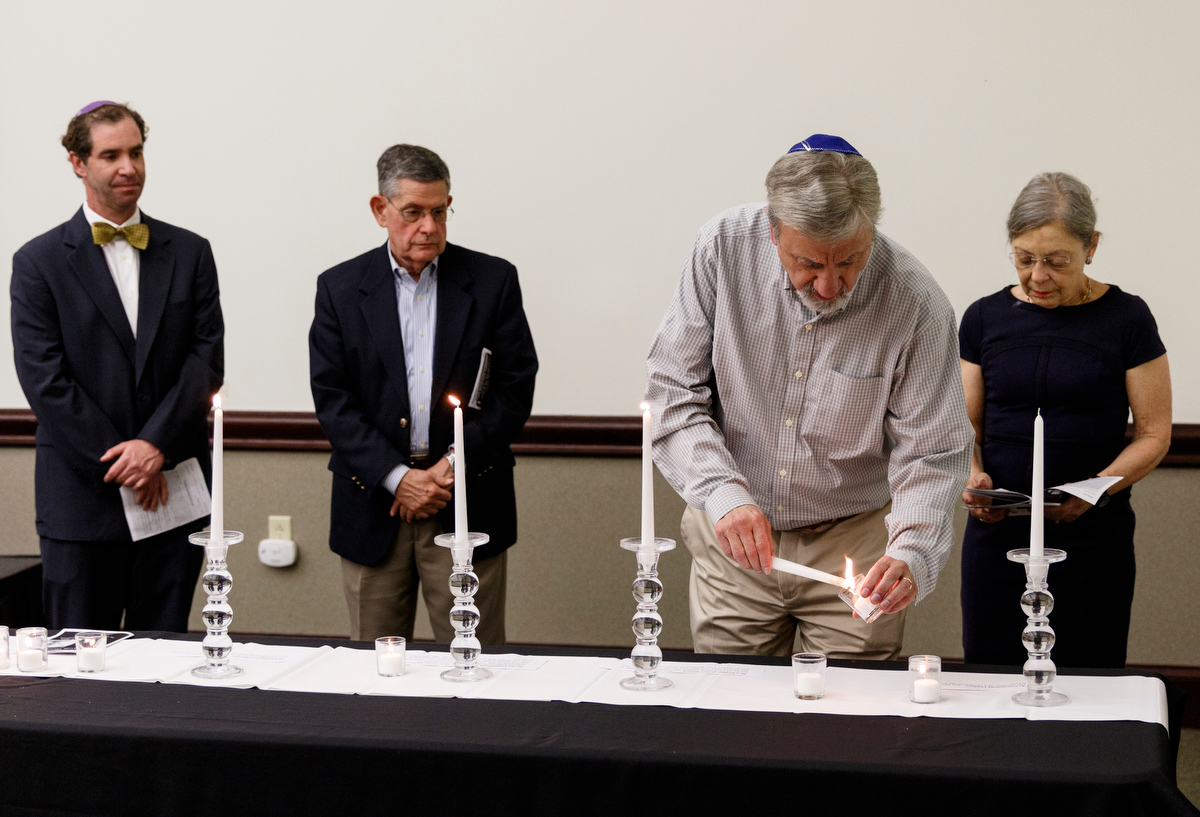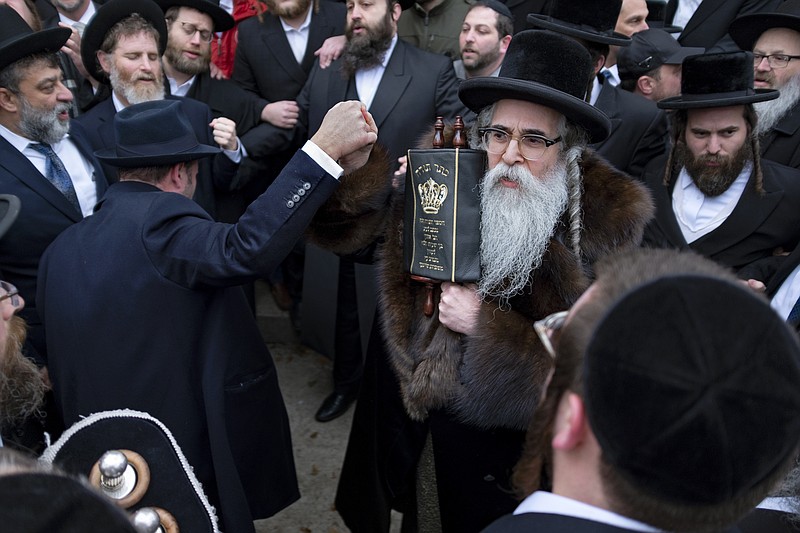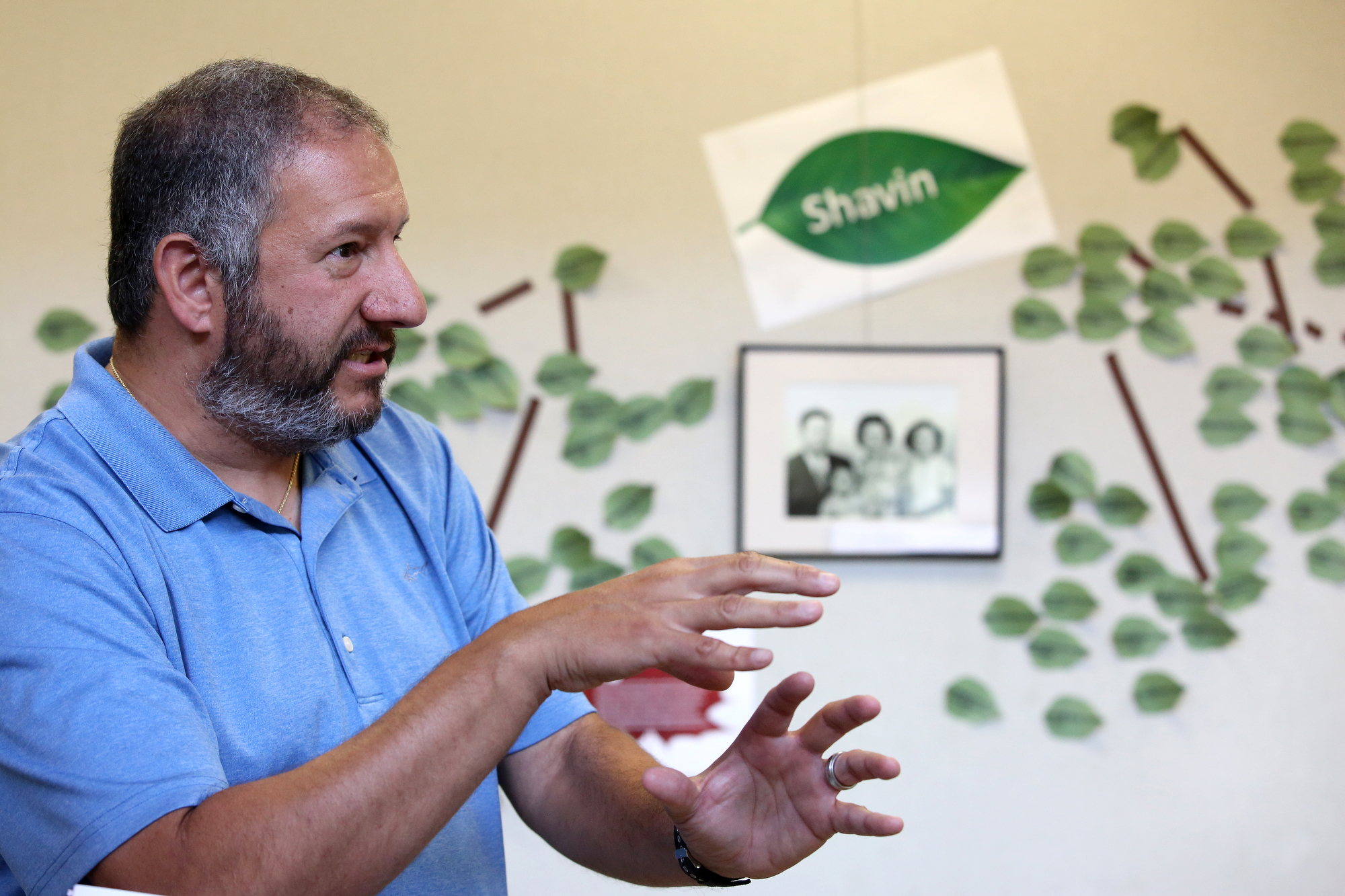Chattanooga's Jewish community is again standing up to hate as the nation reels from its most recent anti-Semitic attack, part of an increasing wave of violence against the religion.
Their calls for protection and understanding come at the end of Hanukkah, the eight-day winter holiday that should otherwise be a period of celebration. On Saturday night, a man carrying a knife attacked Hasidic Jews who were gathered in the home of a rabbi in Monsey, New York, leaving five people wounded. The suspect in custody pleaded not guilty Sunday to five counts of attempted murder.
Leaders in the community said the attack, now being charged as a hate crime, is part of a violent escalation that has moved from temples to kosher delis to now inside a home.
"People are still a bit stunned that this happened in a person's home," said Michael Dzik, Jewish Federation of Greater Chattanooga executive director. "That wasn't a church. This wasn't a temple. This was someone's home."
In a joint statement, the Anti-Defamation League and the Secure Community Network called for greater protection of the Jewish community. "It is time for leaders everywhere, Jewish and non-Jewish, to recognize that additional actions to protect the Jewish community are urgent. The Jewish community is under assault. All of America must hear our cry," the statement read, in part.
READ MORE: Do guns in churches really make people safe? Some churches think so.
Across the nation, anti-Semitism is on the rise - the previous two years have been among the highest annual numbers of anti-Semitic incidents in the Anti-Defamation League's 40 years of tracking. There were 10 incidents in Tennessee in 2018 and 30 in Georgia. In September, the Rock at the University of Tennessee at Knoxville was covered with a message stating Jews were responsible for the 9/11 attacks.
Learn More
On Thursday, Jan 9, the Mayor’s Council Against Hate is hosting former white supremacist TM Garret at 5:30 p.m. at St. Paul’s Episcopal Church at 305 W. 7th St. There is no cost for the event.
Alan Richelson, president of Mizpah Congregation, said his synagogue is again thinking about increasing security as it budgets for 2020.
"Whenever there's an event, we become more aware of our vulnerability and the general threats that are out there," Richelson said. "We continue to make sure we have security when we [meet] at the temple."
In August, Mizpah hosted members of the Hamilton County Sheriff's Office for an active shooter response training. A month later, Mizpah and the two other Jewish organizations in Chattanooga each received a $1,500 security grant from the Jewish Federation.
 Austin Center, Alan Richelson, Bill Hillner, and Judy Sachsman, from left, light candles during a Yom HaShoah ceremony at the Jewish Cultural Center on Wednesday, May 1, 2019, in Chattanooga, Tenn. The tradition is held to honor the memories of the six million Jews killed during the Holocaust between 1941 and 1945.
Austin Center, Alan Richelson, Bill Hillner, and Judy Sachsman, from left, light candles during a Yom HaShoah ceremony at the Jewish Cultural Center on Wednesday, May 1, 2019, in Chattanooga, Tenn. The tradition is held to honor the memories of the six million Jews killed during the Holocaust between 1941 and 1945.Through the shock and sadness of another attack, local Jews were firm in saying violence will not change who they are. Rabbi Craig Lewis of Mizpah said the timing of the attack with Hanukkah is a reminder of the parallels between the lives of ancient and modern Jews.
"Despite the forces that say, 'Don't be Jewish,' we still publicly proclaim it," Lewis said. "That's why we put menorahs in our windows."
READ MORE: NYC ups policing in Jewish areas after spate of attacks
Lewis praised Chattanooga's non-Jewish residents who support and actively learn about the Jewish faith - from Mizpah's public menorah lighting to B'nai Zion's Hanukkah celebration at Barnes & Noble and community tours at the Jewish Federation.
Rabbi Susan Tendler of B'nai Zion said while the New York attack received the most attention, there have been several disturbing attacks on Jews in recent weeks.
"We need to do more than pray and hope, we need to address the problems of how we are failing one another and our youth causing such senseless hatred," Tendler said in an email. "And while we might be tempted to retreat further, lock our doors more tightly, instead we must remain steadfast in our resolve to respond with senseless love for one another knowing there is another way."
While people pay the most attention to major attacks, a culture that seemingly gives permission for violent anti-Semitism is built by allowing small actions to go unaddressed, said Alison Lebovitz, co-chairperson of the Mayor's Council Against Hate. From jokes to things shared on social media, these actions may not meet the standards to report as a hate crime but give permission for others to escalate insensitive jokes into hateful actions and then violence, she said.
People need opportunities to meet and learn from one another, Lebovitz said. Among those is the event next week, when the Council Against Hate is hosting former white supremacist TM Garret to speak about his journey into and out of the hate movement, she said.
From the reporter: I became a journalist to help people see people as people. But highlighting the human side of every policy decision, and how it is affecting your community, takes time as well as support from readers. If you believe in telling the stories of people in your community, please subscribe to the Times Free Press today. Contact me at wmassey@timesfreepress.com or 423-757-6249. Find me on Twitter at @News4Mass.

